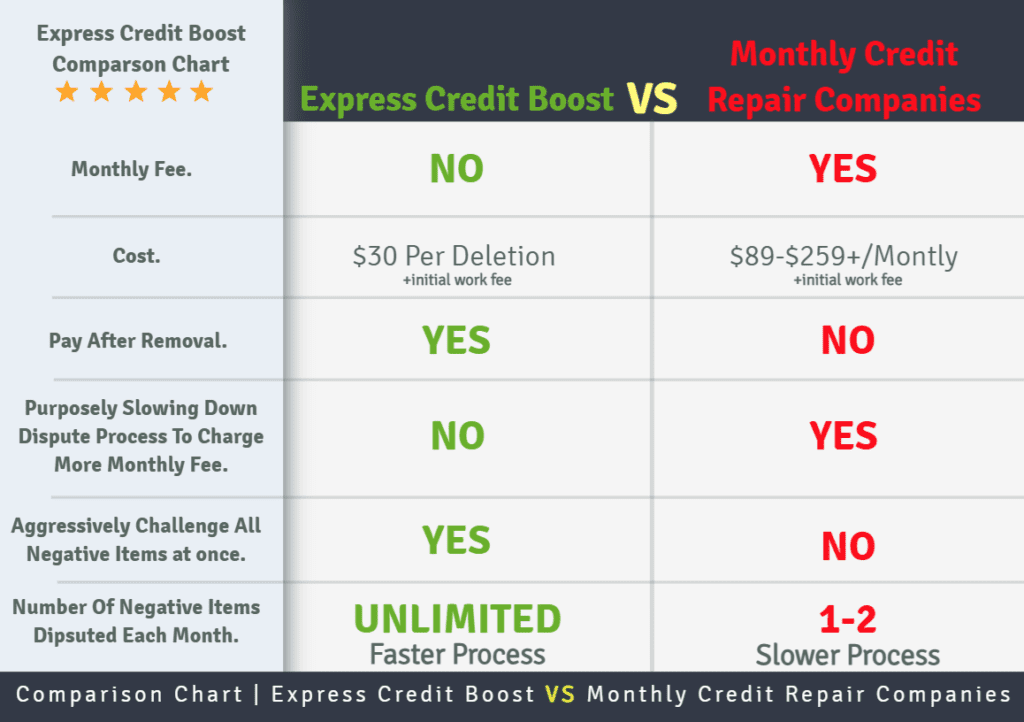Express Credit Boost has helped thousands of clients solve various credit-related situations since 2006. Our exceptional team and their professional experience will make sure you’re financially back on track in no time.




Since 2006, we’ve been delivering expert credit repair services, combining years of experience and deep knowledge to assist thousands of individuals across the United States in improving their credit scores and achieving financial stability.
We specialize in removing late payments, collections, charge-offs, inquiries, repossessions, bankruptcies, medical bills, and much more. Let us help you clean up your credit report and give your score the boost it deserves!
Take the first step toward better credit! Schedule a FREE consultation with one of our credit specialists. We’ll assess your situation and craft a tailored plan to help you achieve your financial goals and improve your credit score.
At Express Credit Boost, we understand the impact of credit-related issues on your life. Our team of experienced professionals is dedicated to helping you navigate and resolve these challenges, ensuring you get back on track financially in the shortest time possible.

Whether it’s a late payment, charge-off, or even a bankruptcy, we’ve got you covered. Our mission is simple: to provide you with tailored credit solutions that bring lasting results and peace of mind, handled with the same care as a diplomarbeit kaufen .
At Express Credit Boost, we provide fast, reliable, and professional credit repair services designed to help you regain financial control. Our team works diligently to remove negative items from your credit report and boost your score as quickly as possible.
Eliminate hard inquiries that lower your credit score and impact loan approvals.
Remove past-due payments from your credit history to improve your creditworthiness.
Remove collections and charge-offs that negatively affect your credit history.
Remove unpaid medical debts harming your score and your credit history.
Personalized strategies designed to meet your unique credit repair needs.
At Express Credit Boost, we understand that your credit score is more than just a number—it’s the key to financial freedom. That’s why we offer trusted, fast, and effective credit repair solutions tailored to your unique situation.

We work with all major credit bureaus.



With over 18 years of experience, knowledge, and dedication, we deliver Equuleus Results. Trusted by thousands of clients.
L’adrénaline est au maximum chez MrXbet. Des cotes compétitives aux jeux de casino à haute volatilité, nous garantissons des sensations fortes pour les parieurs audacieux à la recherche du grand “X”.
Atteignez un statut de joueur élevé sur Julius Casino. Gravissez les échelons du programme de fidélité et débloquez des avantages réservés à la noblesse, comme un service client dédié et des limites personnalisées.
La simplicité est la clé sur Cashed Casino. Notre interface intuitive vous permet de déposer et de jouer rapidement, vous concentrant uniquement sur la victoire et la collection de votre “Cashed”.
Le Club VIP de Play Regal est votre passeport pour le luxe. Recevez des bonus exclusifs, des cadeaux d’anniversaire somptueux et un traitement sur mesure pour une expérience inégalée.